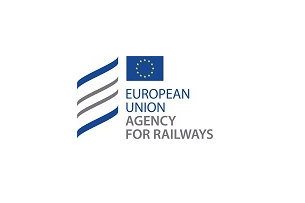“We are then all committed to relaunch rail freight as far as possible. We look forward to building synergies between the different transport modes: maritime transport for heavy and long distances, railway transport across borders and along corridors, and road transport for the last miles”
Following a first videoconference meeting which took place on Tuesday 5 May, Karima Delli, the chairwoman of the ‘transport and tourism’ committee of the European Parliament, together with the Executive Director of the European Union Agency for Railways (ERA) and the CEOs of the European rail freight transport companies members of the Rail Freight Forward Initiative, have decided to set up a new coalition of rail freight.
While rail freight lies within the cleanest transport modes when it comes to transport of goods, fostering modal shift across the EU appears to be a matter of top priority. It is one of the solutions to comply with the ambitions of the Green Deal as well as our climate goals.
The current polycrisis that affects the whole World has however had significant impacts on the overall economy, then on rail freight too. The sector needs to be supported to be able to survive this crisis and to meet our expectations on sustainability over the upcoming months, which could lead to an effective European green logistic chain.
The rail freight coalition aims at working on the ways to encourage modal shift and rail freight, with the ambition to increase the modal share of rail freight in Europe from currently 18% to 30% by 2030 and beyond. It is then about reversing the current trend which has been tending to let rail freight down.
The stakeholders have identified four working issues:
- Rail freight as a priority:
- Rail and road freight do not face the same costs and competition issues. The Council must resume work and conclude the discussions on the Eurocharging directive as quick as possible, in order to launch trialogues over the upcoming months. A whole discussion on competition between road and rail must be held at the top level.
- Rail freight has been key during the Coronavirus crisis, and will keep on being essential. The sector is however not a priority compared to rail passenger transport. The situation should be balanced in the future.
- Rail freight is international and the revision of the Rail Freight Corridors Regulation 913/2010 should lead to the respective governance structures.
- Need of economic and financial support:
- The sector must be incentivised to be able to overcome the current crisis.
- Economic and financial support should however be conditioned to ecofriendly/green investments (see below).
Member States should also take measures on track access fees, to make them lower for rail freight operators while compensating infrastructure managers for the loss of revenue, where there are losses;
- Investments:
- There is a clear need to undertake massive investments (e.g. new traffic control systems) to strengthen and foster modal shift across the EU and the rail freight sector. They should be targeted on infrastructure: digitalisation and investments in new technologies will make possible to set up more capacity on tracks, especially on Rail Freight Corridors.
- Those investments must comply with the climate objectives, when it comes to infrastructures and technologies.
- Investments in rail freight is not an end in itself. Rail operators should also pay close attention to what they deliver.
- Digitalisation:
- To make rail freight as effective and green as possible, new technologies are one of the solutions, in terms of digitalisation, standardisation etc (e.g. digital European capacity planning).
- The use of new technologies must however comply with preservation of jobs as well as with strict data policies.
-
Delli Karima, Chairwoman of the ‘transport’ committee of the European Parliament
Doppelbauer Josef, Executive Director of the European Union Agency for Railways (ERA)
Bednárik Ivan, ČD Cargo
Debaisieux Nicolas, RailCoop
Del Carmen Rincón María, Renfe
Delorme Frederic, SNCF
Engstrand Gustaf, Tågföretagen
Flore Sven, SBB Cargo
Foerst Clemens, RailCargo
Giaconia Maria Annunziata, Mercitalia
Mandl Andreas, LTE Group
Maslikov Yuriy, MT Group
Nikutta Sigrid, DB
Pauwels Geert, Lineas
Söderholm Ted, Green Cargo
Stahl Dirk, BLS
Vozár Martin, ZSSK Cargo
Warsewicz Czesław, PKP Cargo
Zenner Laurence, CFL Cargo
Feighan Conor, European Rail Freight Association (ERFA)
Lochman Libor, Community of European Railway and Infrastructure Companies (CER)
